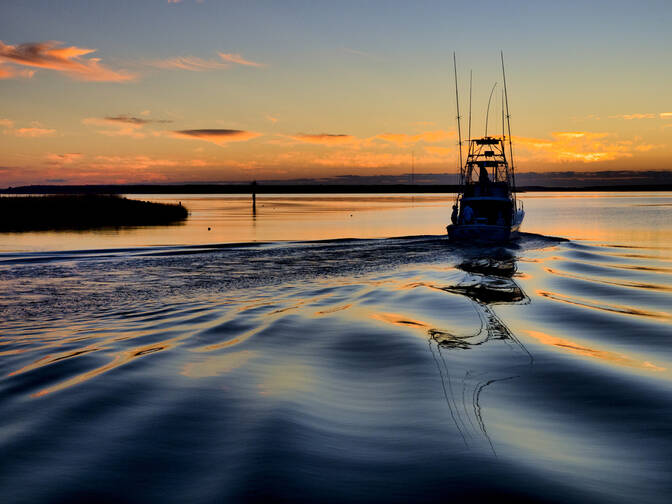Maailman kalastuksen lopettamisen päivä
March 28, Saturday

Maailman kalastuksen lopettamisen päivä muina vuosina
Maailman kalastuksen lopettamisen päivä muissa maissa
- Afganistan
- Alankomaat
- Albania
- Algeria
- Amerikan Samoa
- Andorra
- Angola
- Anguilla
- Antigua ja Barbuda
- Arabiemiirikunnat
- Argentiina
- Armenia
- Aruba
- Australia
- Azerbaidžan
- Bahama
- Bahrain
- Bangladesh
- Barbados
- Belgia
- Belize
- Benin
- Bermudan saaret
- Bhutan
- Bolivia
- Bonaire
- Bosnia ja Hertsegovina
- Botswana
- Brasilia
- Britannian Neitsytsaaret
- Brunein
- Bulgaria
- Burkina Faso
- Burundi
- CAR
- Caymansaaret
- Chile
- Cookinsaaret
- Costa Rica
- Curaçao
- DR Kongo
- Djibouti
- Dominica
- Dominikaaninen tasavalta
- Ecuador
- Egypti
- El Salvador
- Eritrea
- Espanja
- Eswatini
- Etelä-Afrikka
- Etelä-Korea
- Etelä-Sudan
- Etiopia
- Falklandinsaaret
- Fidži
- Filippiinit
- Färsaaret
- Gabon
- Gambia
- Georgia
- Ghana
- Gibraltar
- Grenada
- Grönlanti
- Guadeloupe
- Guam
- Guatemala
- Guernsey
- Guinea
- Guinea-Bissau
- Guyana
- Haiti
- Honduras
- Hongkong
- Indonesia
- Intia
- Irak
- Iran
- Irlanti
- Islanti
- Iso-Britannia
- Israel
- Italia
- Itä-Timor
- Itävalta
- Jamaika
- Japani
- Jemen
- Jersey
- Jordania
- Kambodža
- Kamerun
- Kanada
- Kap Verde
- Kazakstan
- Kenia
- Kiina
- Kirgisia
- Kiribati
- Kolumbia
- Komorit
- Kongo
- Kosovo
- Kreikka
- Kroatia
- Kuuba
- Kuwait
- Kypros
- Laos
- Latvia
- Lesoto
- Libanon
- Liberia
- Libya
- Liechtenstein
- Liettua
- Luxemburg
- Lännen Sahara
- Macao
- Madagaskar
- Malawi
- Malediivit
- Malesia
- Mali
- Malta
- Mansaari
- Marokko
- Marshallinsaaret
- Martinique
- Mauritania
- Mauritius
- Mayotte
- Meksiko
- Moldova
- Monaco
- Mongolia
- Montenegro
- Montserrat
- Mosambik
- Myanmar
- Namibia
- Nauru
- Nepal
- Nicaragua
- Niger
- Nigeria
- Norja
- Norsunluurannikko
- Oman
- Pakistan
- Palau
- Palestiina
- Panama
- Papua-Uusi-Guinea
- Paraguay
- Peru
- Pohjois-Korea
- Pohjois-Makedonia
- Pohjois-Mariaanit
- Portugali
- Puerto Rico
- Puola
- Päiväntasaajan Guinea
- Qatar
- Ranska
- Ranskan Guayana
- Ranskan Polynesia
- Romania
- Ruanda
- Ruotsi
- Réunion
- Saint Helena
- Saint Kitts ja Nevis
- Saint Lucia
- Saint Vincent ja Grenadiinit
- Saint-Barthélemy
- Saint-Martin
- Saint-Pierre ja Miquelon
- Saksa
- Salomonsaaret
- Sambia
- Samoa
- San Marino
- Saudi-Arabia
- Senegal
- Serbia
- Seychellit
- Sierra Leone
- Singapore
- Sint Maarten
- Slovakia
- Slovenia
- Somalia
- Sri Lanka
- Sudan
- Suomi
- Suriname
- Sveitsi
- Syyria
- São Tomé ja Príncipe
- Tadžikistan
- Taiwan
- Tansania
- Tanska
- Thaimaa
- Togo
- Tokelau
- Tonga
- Trinidad ja Tobago
- Tunisia
- Turkki
- Turks- ja Caicossaaret
- Tuvalu
- Türkmenistan
- Tšad
- Tšekki
- Uganda
- Ukraina
- Unkari
- Uruguay
- Uusi-Kaledonia
- Uusi-Seelanti
- Uzbekistan
- Valko-Venäjä
- Vanuatu
- Vatikaani
- Venezuela
- Venäjä
- Vietnam
- Viro
- Wallis ja Futuna
- Yhdysvallat
- Yhdysvaltain Neitsytsaaret
- Zimbabwe
